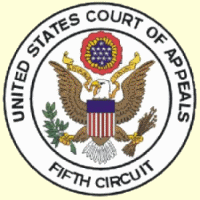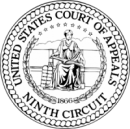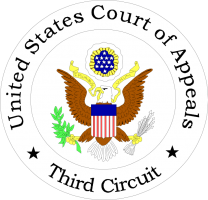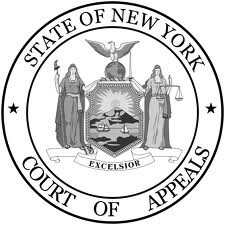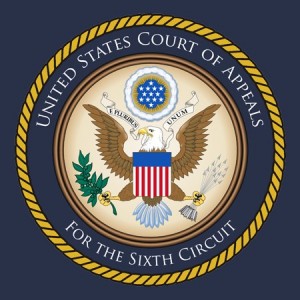The U.S. Court of Appeals for the Fifth Circuit recently held that an unaccepted offer of judgment does not moot a lead plaintiff’s claim in a putative class action. In so ruling, the Fifth Circuit reversed the district court’s ruling that, because a motion for class certification was not filed before the offer, the putative class action was also mooted. A copy of the opinion is available at: Link to Opinion. The plaintiff withdrew money from his checking account at an automated teller machine (ATM) and subsequently sued the ATM owner, seeking statutory damages under the Electronic Funds Transfer Act…
The U.S. Court of Appeals for the Third Circuit recently held that the Federal Trade Commission (FTC) has the legal authority under section 45(a) of the Federal Trade Commission Act (FTC Act) to regulate cybersecurity as an “unfair” act or practice affecting interstate commerce. In so ruling, and among other things, the Court rejected the defendants’ argument that the FTC did not provide “fair notice” of the cybersecurity requirements it was seeking to impose, holding that a company is “not entitled to know with ascertainable certainty the FTC’s interpretation of what cybersecurity practices are required by § 45(a), … as…
The U.S. Court of Appeals for the Ninth Circuit recently held that the district court abused its discretion in denying a plaintiff’s motion to certify a class of home buyers alleging that a scheme involving a title insurer buying minority interests in title agencies in exchange for referral of future title insurance business violated the federal Real Estate Settlement Procedures Act (RESPA), affirming in part, vacating in part and remanding for further proceedings. In so ruling, the Court held that the Consumer Financial Protection Bureau’s position in its amicus brief was not entitled to Chevron deference, because the CFPB was…
The U.S. District Court for the Northern District of California recently held that a web-based platform used to send text messages was not an automatic telephone dialing system (ATDS) under the federal Telephone Consumer Protection Act (TCPA), 47 U.S.C. § 227, because it required “human intervention…in several stages of the process” for sending the text messages. A copy of the opinion is available here: Link to Opinion. The plaintiff customer, who was a patron of a Las Vegas gentlemen’s club (the “Club”) sued the Club and a third-party mobile marketing company for sending him an allegedly “unwanted” text message. The…
The U.S. Court of Appeals for the Third Circuit recently affirmed certification of a nationwide class of mortgage loan borrowers that could include tens, if not hundreds, of thousands of class members. More specifically, the Court held that the putative class plaintiff borrowers’ claims for violations of: (1) the federal Real Estate Settlement Procedures Act (RESPA); (2) the federal Truth in Lending Act (TILA); (3) the federal Home Ownership and Equity Protection Act (HOEPA); and (4) the federal Racketeer Influenced and Corrupt Organizations Act (RICO), satisfied the certification requirements of Federal Rules of Civil Procedure 23. A copy of the…
The Florida Third District Court of Appeal recently reversed a judgment foreclosing a reverse mortgage, holding that the surviving spouse was a “borrower” under the terms of the mortgage, and thus the lender could not meet the condition precedent of her death in order to foreclose. A copy of the opinion is available at: Link to Opinion. In 2008, husband and wife signed a promissory note secured by a “home equity conversion mortgage,” commonly known as a “reverse mortgage.” The wife signed the mortgage, but not the promissory note. After the husband died in 2009, the lender sued to foreclose,…
Unsolicited e-faxes — documents converted to an email or attachment between the faxer and a recipient — are subject to the same consumer protections as unsolicited conventional faxes, according to a recent Federal Communications Commission declaratory ruling. The ruling built upon certain provisions of the Telephone Consumer Protection Act and the Junk Fax Protection Act, establishing that unsolicited communications that begin as faxes, including those converted to an electronic format after they are sent, justify consumer protection because e-faxes can cause some of the same issues and costs for businesses as conventional faxes. E-faxes “can increase labor costs for businesses,…
The New York Court of Appeals recently affirmed a trial court’s denial of a motion for deficiency judgment because the lender presented conclusory, insufficient evidence about the value of the property. In so ruling, the Court held that, even with uncontested deficiency motions, a lender that has foreclosed must present satisfactory evidence about the value of the property. However, the Court also held that when the lender presents insufficient evidence, the trial court should give the lender at least one additional chance to present adequate evidence. A copy of the opinion is available at: Link to Opinion. The lender filed…
National financial services law firm Maurice Wutscher LLP has opened a new office in Boston, hiring financial services attorney Brady Hermann to lead the firm’s Massachusetts litigation matters. This brings the number of offices of Maurice Wutscher LLP to 12. Hermann will practice in the firm’s Commercial Litigation and Consumer Credit Litigation groups, joining Maurice Wutscher’s skilled team of 26 attorneys focused on defense of the financial services industry in offices throughout the United States. In addition to Boston, Maurice Wutscher has offices in Austin, Chicago, Cincinnati, Flemington, Indianapolis, Miami, New York, Philadelphia, San Diego, San Francisco and Washington, DC.…
The Florida Second District Court of Appeal recently reversed a trial court’s order in a mortgage foreclosure action limiting the liability of a loan servicer who acquired title by foreclosure for past-due condominium assessments, holding that the trial court lacked subject matter jurisdiction because the specific issue of assessments was not litigated or adjudicated by the trial court. A copy of the opinion is available at: Link to Opinion. The owner of a condominium unit failed to pay his mortgage loan, resulting in the loan servicer suing to foreclose the mortgage and obtaining title at the foreclosure sale as the…
The U.S. Court of Appeals for the Sixth Circuit recently held that, under the federal Telephone Consumer Protection Act, a called party gives his “prior express consent” to be called on a cellular telephone number with an automatic telephone dialing system (ATDS) when that person gives his creditor his cellular telephone number in connection with a debt owed, even where the person provides his cellular telephone number after the transaction is originally entered into, so long as the number is provided in connection with the debt. The Sixth Circuit further ruled that a person need only provide general consent to…
The U.S. Court of Appeals for the Eleventh Circuit recently confirmed that an entity is not a “debt collector” under the federal Fair Debt Collection Practices Act, where it does not regularly collect on debts owed to a third party, and debt collection is not the principal purpose of the entity’s business, even when the debt was in default at the time the entity acquired it. A copy of the opinion is available at: Link to Opinion. A lender sued a borrower to collect credit card debt. The parties entered into a settlement agreement, but the borrower failed to pay…

